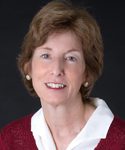 The COVID-19 pandemic exacerbated wide disparities that exist in the U.S. healthcare system. During the pandemic, the clinical practice in the Section of Rheumatology, Allergy & Immunology at Yale School of Medicine (YSM), New Haven, Conn., rapidly pivoted from face-to-face visits to telehealth to keep our patients and providers safe. Many patients quickly adapted and were thankful to still be able to see their doctors, discuss their fears and talk about disease management during the pandemic.
The COVID-19 pandemic exacerbated wide disparities that exist in the U.S. healthcare system. During the pandemic, the clinical practice in the Section of Rheumatology, Allergy & Immunology at Yale School of Medicine (YSM), New Haven, Conn., rapidly pivoted from face-to-face visits to telehealth to keep our patients and providers safe. Many patients quickly adapted and were thankful to still be able to see their doctors, discuss their fears and talk about disease management during the pandemic.
However, glaring disparities in access to care for minority and underserved populations also became apparent; access to telehealth was dependent on having adequate technological tools and Wi-Fi services. Lack of public transportation made it difficult to keep appointments and complete necessary blood tests. Language barriers and difficulty in adding interpreter services to telehealth visits compounded communication issues. Many patients became primary caregivers for family members, and young families struggled with meeting educational goals with school cancellations.
The Need Defined
Lenore Buckley, MD, MPH, professor of medicine (rheumatology and pediatrics) and former clinical chief for Yale’s Rheumatology, Allergy & Immunology section, is no stranger to challenges in delivering rheumatologic care. After arriving at YSM in 2013, Dr. Buckley noticed that other medical school departments had a presence at a nearby community health clinic, the Cornell Scott Hill Health Center (CSHHC). Dr. Buckley initially questioned whether it was necessary to treat patients at a clinic less than a mile from Yale New Haven Hospital, where people who are uninsured or receive Medicaid are also treated.
She soon determined it was. Many of the people Dr. Buckley treats at the clinic do not have adequate health insurance—or any insurance at all. Some are recent immigrants. Most have complex social, financial, and personal situations, and need assistance navigating the healthcare system. Dr. Buckley realized that for these patients, the CSHHC feels welcoming, with employees who speak to them in Spanish, and is less intimidating than a large hospital. Two years after helping institute the program, Dr. Buckley began seeing patients weekly at the clinic.
About the Clinic
The CSHHC was founded in 1968 and is the first community healthcare center in Connecticut. It serves about 35,000 people from Greater New Haven and a nearby region known as the Lower Naugatuck Valley. Of its patients, 38% are Latinx, 34% are Black, and 44% are white. The center provides primary care, dental services, diabetes prevention and education, as well as special programs such as HIV/AIDS outreach, education and treatment; medication-
assisted treatment for people with opioid use disorder; and a pharmacy that offers most drugs at significant discounts.
